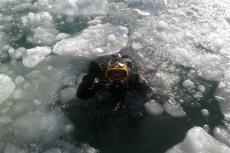
For thousands of years, humans have shared meaning, information, and significance amongst themselves in various ways. One of the most powerful and fundamental methods for doing this has long been through the use of story and storytelling. Story has been a bedrock of human existence and communication for multiple millennia. It remains a powerful and impactful tool for articulating important realities and inspiring change.
In the midst of today’s climate crisis and significant environmental challenges, we need every aid at our disposal to spread awareness about environmental truths.
If you are an environmental health expert that engages in outreach or teaching about this subject, storytelling can be a powerful strategy for increasing the effectiveness of your work and engaging with your audiences in new ways. And similarly, if you are an environmental enthusiast that is interested in sharing your passion with others and contributing to the fight for environmental health, it can benefit you as well.
Here are some helpful tips for approaching environmental health activism and incorporating storytelling along the way.
How Storytelling Practices Can Further Environmental Health Awareness
It might seem difficult at first glance to see the link between storytelling and environmental health. What do stories have to do with activism and environmental policy change? However, storytelling is actually a vital part of any initiative that works toward change, awareness, activation, and impact.
As humans, we relate deeply to stories. Our brains naturally understand story arcs, plot twists, and characters. A concept shared in a story is often more easily remembered and is more likely to create attitude and behavior changes than conveying the same basic information in other formats like statistics or prose. Because this is true, sharing concepts or advocating for change in the form of storytelling can be a uniquely effective way of prompting understanding and adaptation. To effectively incorporate storytelling into environmental health advocacy, it’s important to understand and utilize best practice.
Storytelling concepts are the sorts of learnings taught in cinematography classes and creative writing workshops. There are many ways to learn the fundamentals of storytelling.
Public speaking techniques are also incredibly useful for this work. They are not just for public speakers. Public speaking happens in a host of different contexts and applications, from education to financial planning to adventure sports. However you feel most comfortable, seek out opportunities to develop your speaking and communication skills.
Finally, storytelling tone matters — especially in cases when you are educating people about topics that might be polarizing or create strong pushback from some audiences. It’s important to deliver your messages in ways that are compelling, relatable, and inviting — not in ways that are derogatory, repelling, or severe.
Incorporating these elements and tips in the way you utilize the practice of storytelling can create effective conduits for environmental health awareness and change.
Paving the Way Toward Involvement in Environmental Health Advocacy
Whether you are already an established expert in the field of environmental health, are not but are interested in moving that direction, or if you’re interested in making environmental awareness and advocacy a more important part of your life, there are a number of ways to pursue that aim. Whether you’d like to make it a career or simply a passion activity you engage in occasionally, there are lots of needs for environmental health expertise as well as different routes you can take to get more involved.
Available Avenues for Influencing Others About Environmental Health
There are nearly limitless ways to play a part in the environmental health advocacy process. You don’t have to be a famous public speaker, chain yourself to a bulldozer in a protest, or give up your other passions to make a meaningful difference in the fight for environmental health. Here are some ideas for getting involved in one way or another that can range from significant choices (like choosing or changing your career) to low-threshold additions. There’s something here for everyone regardless of life circumstances, career type or aspirations, and skill set.
Teaching: Becoming an Educator
Teachers and educators have unique levels of influence with the populations they teach or work with. From the youngest kids to the most successful professionals to the most elderly, people respect and listen to their teachers. If you enjoy the process of teaching and could see yourself in an educator’s role in some capacity, pursuing an educational career is a fantastic way to leverage influence, communication skills, and “captive audiences” to make a difference for environmental health.
Professorship: Environmental Health in Higher Education
Education jobs come in many shapes and sizes. Becoming a professor at a higher education institution grants you what can often be a formative role in the lives of young adults at a time when they are determining life rhythms, directions, and values. Entering professorship in any capacity (and especially in subjects pertinent to environmental health and awareness) is arguably one of the most potent ways to guarantee yourself an opportunity to influence the thinkers and leaders of the future towards better environmental health awareness.
Influence in the Corporate Space: Using a Business Platform
Within the corporate world, there are growing opportunities to promote environmentally friendly initiatives. Whatever your role in your company (or role you may be interested in), it is likely that your company or future employers will have some kind of environmental corporate responsibility campaign or initiative that you could be a part of if you ask around and pursue it. And if there aren’t existing opportunities to help your employer become more proactive about environmental health, chances are you’d be able to take part in starting one if you asked for that opportunity.
Environmental Careers: Environmental Project Management, Communications, and More
Increasingly in today’s job market, a breed of organizations exists either for the sole purpose of driving environmental health change or for propelling various types of similar initiatives around the globe. Even within organizations that weren’t expressly created for that purpose, many larger entities are developing dedicated positions to propel or manage environmental initiatives either internally within the company or externally with the public or stakeholders. These opportunities are hugely exciting ways for those passionate about environmental health to contribute towards significant change.
Personal Relationships: You Have Impact Wherever You Are
Even if you aren’t interested in any of the ideas or directions above, you still have ample opportunities to influence people around you towards better environmental health and stewardship. Engaging in environmental activism can be accomplished completely separate from your career.
The opportunities to become a personal advocate for environmental health are only limited by your creativity. Write posts in your neighborhood chat or newsletter. Teach a class at the local community center. Help your kids start environmental clubs at their schools. Put on benefit events or fundraisers to support environmental initiatives. Share with your friends the ways you are working to change your habits and reduce your environmental footprint.
And remember — storytelling is a powerful tool to incorporate in any of these ideas. Use it to enthrall, inspire, and activate those around you to do their part towards protecting environmental health.






















